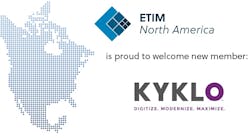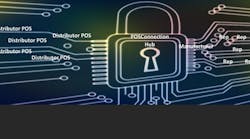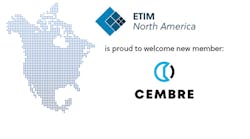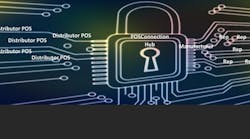With all the talk about the impact of electronic commerce on the electrical wholesaling industry, it's easy to forget that it's affecting the rest of the business world, too. Some industries are ahead of the electrical business in their attempts to deal with electronic commerce and some are behind it, but it's changing all of them forever. To bring EW's readers the latest information on what's happening with electrical commerce outside this business, we rode around the Internet on our T1 connections for a few hours to search for the trends and news that we think will impact the electrical industry most. Here are our picks:
Internet speeds will increase exponentially within a year for the masses. After all the initial excitement in the Web's early years over its potential, last year was a snooze for many Web surfers waiting for The Next Big Thing. Truly radically new and life-changing developments (for Internauts, anyway) were few and far between.
Take heart and awaken from ye slumber! Big Things are happening again. Chief among them is Speed, truly remarkable increases in speed. A rash of new developments will cheer up all of the frustrated Web surfers out there with 28.8 modems who are climbing the walls because of the amount of time it takes to download graphics.
A recently announced alliance between Compaq Computer Corp., Microsoft Corp. and Intel Corp. brings new hope. These companies are teaming up with local Bell operating companies to offer users new modems and software that will increase data transmission speed up to 30 times by the end of this year. Yes, 30 times. According to a New York Times report, the new hardware and software would operate on existing telephone wiring and allow users to cruise the Internet and receive or make telephone calls at the same time.
The new system is based on a technology called a "digital subscriber line (DSL)," that has been under development for several years but was held back until recently by a debate over technical standards. In the Phoenix, Ariz., market, one of several areas where DSL systems are now being test marketed, subscribers paid $200 for installation of this system and a monthly subscriber fee of at least $40, according to the article.
News of a related development hit the streets at press time that Lucent Technologies, Inc., Murray Hill, N.J., would begin shipping sample DSL chips in third-quarter 1998. For the more technically minded out there who care about such things, these chip convert analog telephone lines into digital lines without having to install new telephone wiring, and allow users faster access to the Internet without new equipment.
And along with its participation with Compaq and Microsoft on the DSL, Intel, the world's largest computer chip manufacturer, is looking to juice up transmission speeds with its "Quick Web" software for Web servers. The new software and Intel chips work together to compress graphic images before a server sends them out onto the Web, enabling users to download graphics from two to seven times faster.
IBM showing new strength in providing customized electronic commerce solutions. It's says something about what's happening with Big Blue when its fastest-growing business is its Global Services business unit, which develops customized information systems for customers. The unit has grown from $2.1 billion in annual sales in 1991 to $19 billion last year, and some industry analysts say it's the new "soul" of the company. Browse IBM's Web site at www.ibm.com, and you will see that many of the solutions it develops involve electronic commerce.
Another possible sign of things to come is that Samuel Palmisano, the head of this business unit, is one of the rising stars at the company, and is said to have a shot at the top post when Louis Gerstner, the company's chairman, eventually retires.
Sterling Commerce emerges as a popular stock on Wall Street. Not all that long ago, most Wall Street analysts probably thought "EDI" was a little-known ticker symbol on the Big Board. But since Sterling Software, Inc., Columbus, Ohio, spun off the Dallas-based Sterling Commerce, Inc. as an IPO last February, its "SE" stock symbol has ended up on the "Buy" list of many brokers. With its Web-based EDI system; years of experience developing electronic commerce systems for the nation's largest banks and Fortune 500 companies; 1997 acquisitions of Automated Catalogue, Wayne, Pa., (developer of NAED's AnswerPro CD-ROM); and distribution agreement with Profile Systems, Inc., West Springfield, Mass., for its Pro-Synch data synchronization software, Sterling Commerce is a company to watch.
Some industries felt the earth move under their feet because of successful Internet-based sales alternatives. One of the very first stops for anyone trying to get a fix on how electronic commerce is changing the business world in general and the distribution business in particular is www.merrifield.com. Bruce Merrifield, president, Merrifield Consulting Group, Inc., Chapel Hill, N.C., intrigues, frightens and otherwise entertains audiences at distribution association meetings with his observations on how electronic commerce will inevitably remake the distribution business. He won't disappoint anyone who enjoys his style with the recent posting on his Web site entitled "1997 Developments in Channels of Distribution," which you can find by clicking on "Commentaries" on the company's home page. For a summary of this article, check out this issue's "Getting traction," (page 32). In this article are Merrifield's examples of how six industries saw Web businesses present real-world alternatives to selling products in their distribution channel.
One scenario in the article that could some day play out in the electrical industry is Dell Computer Corp.'s sales of personal computers over www.dell.com. To see why, log onto Dell's Web site and check out how easy it is to put together a computer for your home office. All you have to do is click on "Buy a Dell"; pull-down menus will walk you through the selection process. Go wild-Get that 17-in. monitor, the Zip drive and the serious sound system. Click on "Add to shopping cart," and within seconds you will have ordered your system. Check the price, and try to figure out what value-added services you would get at the computer mega-store out on the highway, and why you would want to buy that computer system there.
Now think why one of your customers couldn't go through the same process to put together a motor control center, or a shopping list of all the electrical products and related job-site materials he needs for that new strip shopping center going in down the road, or any other application. The future may be nearer than you think!








